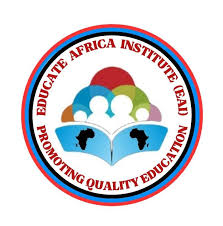Nanisto News Blog of Monday, 11 November 2024
Source: Manteaw Amos
Government must focus on the national apprenticeship program or build more prisons - Educate Africa Institute

The Educate Africa Institute (EAI) urgently calls on Ghana’s government to prioritize the National Apprenticeship Program (NAP) to empower the nation’s youth with practical skills, reduce unemployment, and curtail rising social crimes.
Under the Council for Technical and Vocational Education and Training (COTVET), NAP is designed to deliver hands-on training through district-level coordinators within the Ghana Education Service (GES), working closely with trade-specific associations.
This collaborative approach aims to ensure the program directly aligns with local industry demands, providing immediate employment pathways for young people upon completion.
The current education system, which leans heavily on theoretical learning, leaves students ill-prepared for the job market’s real-world requirements.
This approach, EAI warns, misguides the youth into fields with limited practical relevance, resulting in high unemployment and growing frustration.
A shift to skills-based training is crucial to address this challenge and enable young Ghanaians to build self-sustaining futures.
However, despite efforts to introduce more practical elements into the curriculum, progress is hindered by a lack of training materials and resources, which stalls the curriculum’s effective implementation.
The EAI underscores the importance of consistent support in educational reform, urging the government to focus on implementing one stable, well-resourced curriculum before pursuing additional changes.
Recent curriculum overhauls, particularly at the Senior High School (SHS) level, have lacked adequate resource allocation for both teachers and students, creating an unstable foundation for skill development.
Without sustained commitment, the impact of these reforms remains limited, and the investment in education may fail to produce the desired outcomes.
The stakes are high: either Ghana invests in the National Apprenticeship Program to equip its youth for success or faces a future where crime becomes an alternative to economic security.
EAI’s message is clear provide the tools for young Ghanaians to thrive or prepare to build more prisons.
A robust apprenticeship program, driven by skills-oriented education, offers the best path forward.
EAI urges the government, the Ministry of Education, and stakeholders to prioritize NAP’s successful implementation and secure the future of Ghana’s youth and the nation itself.


















